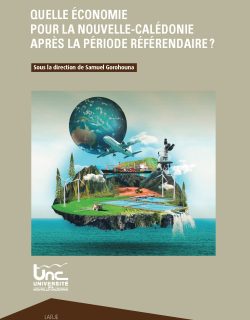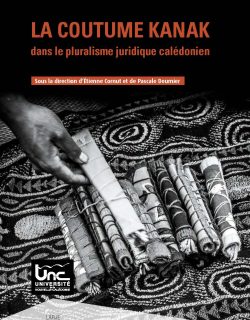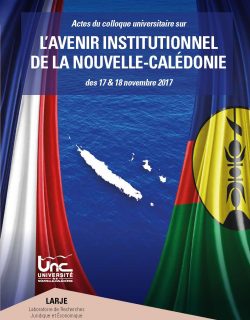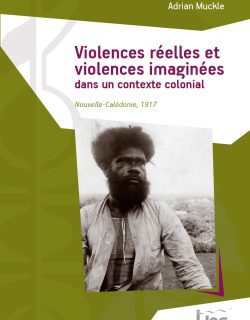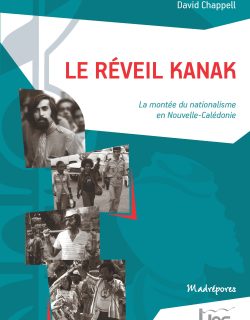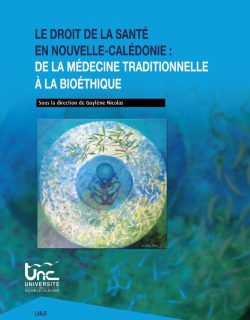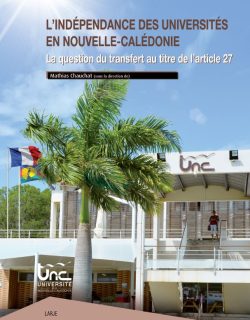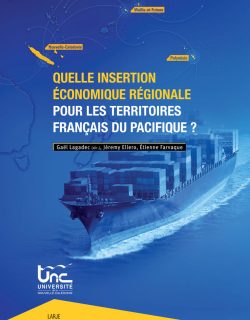New Caledonia University Presses
The only French-language presses in the Pacific, the University Presses of New Caledonia (PUNC) contributes to the publishing of scientific works and journals. The Presses are a tool for distributing and promoting research, particularly research conducted at the University of New Caledonia, that is of interest to New Caledonia and beyond for Oceania.
They are also tasked with facilitating access to reference books about New Caledonia (previously only available in English, German, etc.) through translations.
The PUNC also aims to promote French-language research in the Pacific region through the implementation of a bilingual communication policy and co-editions.
Latest Publication(s)
Collections
La collection CRESICA porte l’ambition de valoriser des travaux collectifs des membres du Consortium pour la
Recherche, l’Enseignement Supérieur et l’lnnovation en Nouvelle-Calédonie. Qu’il s’agisse d’actes de colloques,
de restitutions d’ateliers ou encore de projets de recherche, cette collection met en avant des productions
communes aux chercheurs des neufs organismes membres de ce consortium (le BRGM, le CHT, le Cirad, le CNRS, l’IAC, l’Ifremer, l’IPNC, l’IRD et l’UNC).
La politique scientifique du CRESICA se décline selon trois objectifs thématiques, qui structurent le projet scientifique partagé du consortium :
– la valorisation du capital naturel (biodiversité, mine et environnement) ;
– l’amélioration de la santé en lien avec l’environnement et les sociétés ;
– l’accompagnement de l’évolution institutionnelle, sociétale et culturelle ;
et deux axes transversaux :
– l’insularité – la globalisation ;
– le changement climatique.
La collection CRESICA s’adresse aux acteurs de la recherche, aux institutions de la Nouvelle-Calédonie
(aux élus et aux services techniques), comme à toute personne s’intéressant aux problématiques de recherche
et de développement propres à la Nouvelle-Calédonie.
La collection La-Ni regroupe les travaux des membres des équipes SHS ERALO et TROCA de l’université de la Nouvelle-Calédonie. Son nom, La-Ni, « Le chemin des richesses » en nengone permet d’affirmer l’ancrage calédonien des deux équipes et il est emblématique des centres d’intérêt et axes de recherche sur lesquels travaillent ces deux équipes. Leur approche est résolument pluridisciplinaire, voire interdisciplinaire, et encourage la complémentarité des outils méthodologiques.
Les objets d’analyse centraux de TROCA se trouvent dans l’étude des sources orales, écrites, historiques, géographiques ou archéologiques qui permettent de restituer, dans leur complexité synchronique et diachronique, les trajectoires des sociétés contemporaines d’Océanie.
Du peuplement initial à l’arrivée des Européens, 3 000 ans d’histoire ont forgé l’histoire de l’archipel calédonien dans cet environnement fluide que constitue l’espace océanien. La dialectique temps-long/temps court qui s’applique à cet espace fluide constitue la matrice des recherches menées par TROCA.
ERALO a pour objet central les langues, les discours et les dynamiques plurilingues et explore, en particulier, les créations, les mobilités et les idéologies au travers d’entrées pluridisciplinaires (linguistiques, géographie, sociolinguistique, études visuelles).
Les projets de recherche, de formation et de médiation de cette équipe ont pour objectif de contribuer à la valorisation des langues et cultures océaniennes. Les actions de terrains incluent les milieux scolaires, urbains et artistiques. Il s’agit, ici, de contribuer à la pluralité sociale à partir des besoins.
This collection aims to highlight original research on the topic of New Caledonia and its regional environment, particularly from the research strategies identified by the LARJE team which is part of the University of New Caledonia, by the Consortium for Research, Higher Education and Innovation in New Caledonia (CRESICA) or by the Pacific Islands Universities Research Network (PIURN).
Its ambition is to promote the publishing and distribution of works that factors in a major component in the South Pacific: multiculturalism which impacts normative, economic as well as management rules.
In the legal field and in relation to multiculturalism, legal pluralism is one of the major themes highlighted in this collection because it constantly presupposes rethinking the models of creation, integration or articulation of norms, as it influences the respective place and role of local institutions and the state in a region (South Pacific) where different governance models coexist.
Economic work focuses on New Caledonia, French Polynesia and Wallis and Futuna, as well as their regional environment. The main areas of this research are resources (current and future), sustainable development, economic, social and human rebalancing, as well as models of development in contexts of remoteness or emancipation from metropolitan France.
In the field of management, the primary focus of research is on the impact of multiculturalism in human resources management, and more generally on the search for intermediation tools between Pacific and International models.
- Précis du droit civil coutumier kanak. Antoine Leca, 2019
- Quelle économie pour la Nouvelle-Calédonie après la période référendaire ? Samuel Gorohouna (dir.), 2019
- La Nouvelle-Calédonie face à la crise des finances publiques. Manuel Tirard (dir.), 2019
- L’avenir institutionnel de la Nouvelle-Calédonie. Jean-Marc Boyer, Mathias Chauchat, géraldine Giraudeau, Samuel Gorohouna, Caroline Gravelat, Catherine Ris (dir.), 2018
- La coutume kanak dans le pluralisme juridique calédonien. Étienne Cornut et Pascal Deumier (dir.), 2018
- Le droit de la santé en Nouvelle-Calédonie : de la médecine traditionnelle à la bioethique. Guylène Nicoals (dir.), 2017
- L’indépendance des université en Nouvelle-Calédonie. Mathias Chauchat (dir.), 2017
- Quelle insertion économique régionale pour les territoires français du Pacifique ? Gaël Lagadec (dir.), Jérémy Ellero, Étienne Farvaque, 2016
The LIRE collection aims to publish in different formats the work carried out in the Interdisciplinary Laboratory of Education Research (LIRE) of the University of New Caledonia, with possible collaborations with other UNC teams (including LARJE and the emerging TROCA team), local partners (CRESICA, New Caledonian institutions) or regional partners (PIURN and partner universities).
The publications contribute to the implementation of the LIRE’s scientific project on issues of “educational success in a multicultural context.” They are closely linked to the laboratory’s three main research themes: “innovation in education,” “youth health and well-being in Oceania,” “comparative analysis of education systems and education policies in Oceania.” Multi- and/or interdisciplinary methods are preferred, as are those with a strong comparative dimension, particularly at the Pacific level. The collection supports the development of education research in New Caledonia and Oceania but is open to work relating to other disciplinary fields represented within the LIRE.
The published works focus on the following themes: education in a multicultural context; socio-economic inequalities, particularly those related to gender, and their impact on education and success; issues of well-being and health, body image and self-esteem; the didactic of the disciplines; traditional knowledge and how it is transmitted; the diversity of affiliations; heritage education; multilingualism; the complex relationship people have with School; education systems and education policies in Oceania; citizenship training.
The Resonances collection has a truly local ambition: providing access to all reference works, important for New Caledonia, through their translation and/or re-edition. It also aims to publish contemporary texts that shed light on New Caledonian issues in association with cultural stakeholders in the territory or in the Pacific. This collection constitutes a significant portion of the iconographic riches of the territory and the region.
New Caledonia University Presses (PUNC)
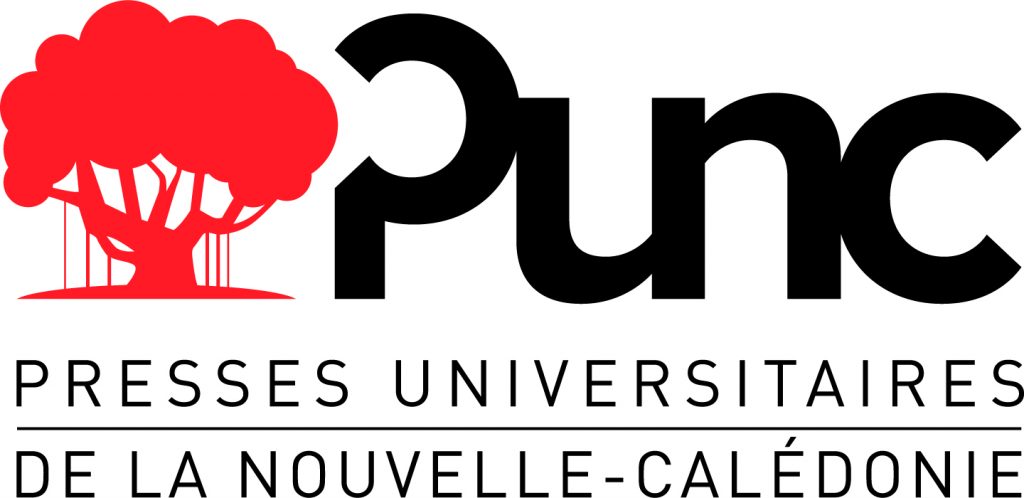
Françoise Cayrol | Editorial Coordinator
(+687) 290 475
francoise.cayrol@unc.nc
punc.coordination@unc.nc




